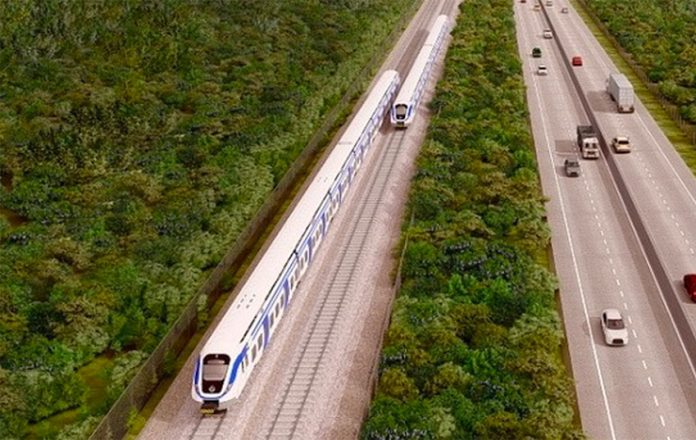The National Tourism Promotion Fund (Fonatur) withheld critical information about the US $8-billion Maya Train railroad when it sought funding for the project from the federal Finance Ministry (SHCP).
The newspaper El Universal reported Monday that Fonatur, which is managing the construction of the 1,500-kilometer tourist and freight railway through Chiapas, Tabasco, Campeche, Yucatán and Quintana Roo, hid “critical information” related to the Maya Train route, expected passenger demand and construction risks.
Professional services firm PricewaterhouseCoopers (PwC) was paid 32 million pesos (US $1.6 million) by Fonatur to carry out a financial analysis of the project but many of its key findings were not included in a cost-benefit analysis the tourism fund submitted to the SHCP.
El Universal, which obtained almost 7,500 pages of documents delivered to Fonatur by PwC , said the multinational warned of an extremely complex process to build a section of the railroad through jungle between Xul-Ha, Quintana Roo, and Escárcega, Campeche.
PwC also said that construction of the 250-kilometer section would come at great cost and have a significant environmental and social impact.
But Fonatur didn’t include that information in the analysis it submitted to the SHCP. “In other words, fundamental information about this section was hidden,” El Universal said.
Fonatur also withheld a range of other information from the SHCP, including warnings from the Federal Electricity Commission that it would face “significant difficulties in building electrical lines parallel” to existing highway infrastructure, “which generates doubts about the practicality and capacity to deliver a railroad beside it.”
In addition, it didn’t disclose warnings that it was likely to face significant opposition from environmental groups, especially in places such as the Calakmul Biosphere Reserve in Campeche.
PwC warned of a total of 10 construction and operational risks for the Maya Train that Fonatur didn’t disclose or didn’t disclose fully to finance officials.
The risks, which PwC said have a high probability of materializing, “would have a severe impact” if they occurred, El Universal reported, noting that they could cause cost overruns and delays for the government’s signature infrastructure project.
“The [possible] delays range from one to 10 months and the overruns could reach 20% of the [total cost of the] project,” the newspaper said.
Among the likely problems identified by PwC were a lack of coordination in the management of the project; delays in obtaining social approval; delays in obtaining environmental permits; difficulties in obtaining right of way permission; deficient management of the construction contracts; geological risks – there is a vast underground water network on the Yucatán peninsula; and erroneous estimates about demand for Maya Train services.
(The government has said that as many as 18 million people could rise the train annually, an estimate described as pie in the sky by Francisco Javier Gorostiza Pérez, a former train boss and ex-government official.)
Given President López Obrador’s enthusiasm for the train – which he says will spur social and economic development in Mexico’s southeast – it is unlikely that the SHCP would have rejected funding for the project had it been informed of the information Fonatur hid from it. However, withholding information is not a good look for a government that says it prides itself on being transparent.
The government has already faced criticism for carrying out a referendum in 2019 that found overwhelming support for the project but which didn’t meet all international human rights standards, according to the United Nations.
Many activists, community landowners, residents and politicians said there wasn’t sufficient information about the project to decide whether it should be built or not. The Zapatistas called the consultation “a sham,” while there have been numerous claims that the views of the affected communities have been disregarded. In addition, there are numerous environmental concerns, with some experts warning of risks the project poses to underground water networks and the long-term survival of the jaguar.
Legal challenges have held up construction of some sections of the railroad but the government is forging ahead, pressuring companies to build it a cracking pace so that it can open before López Obrador leaves office in 2024.
The government has even engaged the army – a favored infrastructure contractor that is also building the new Mexico City airport, among other public works – to build some sections of the railroad, a move that could make resistance to the project more difficult.
The government is adamant that the railroad – which will also offer local services to residents of the five states through which it will run – will begin operations in 2023. It has found a company to build the required trains but it remains to seen whether demand for the service will be high enough for the government to recoup its investment costs and deliver the economic benefits touted by the president, the railroad’s preeminent backer.
With reports from El Universal
